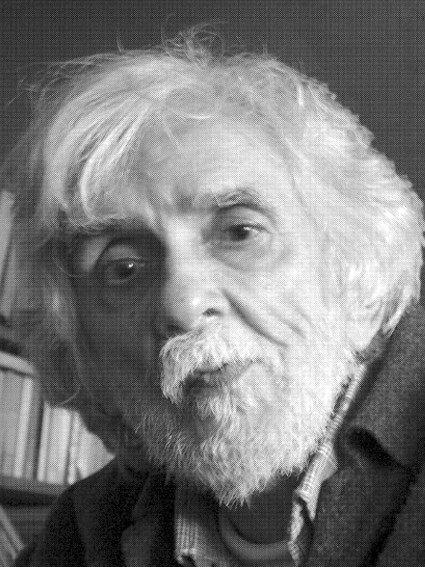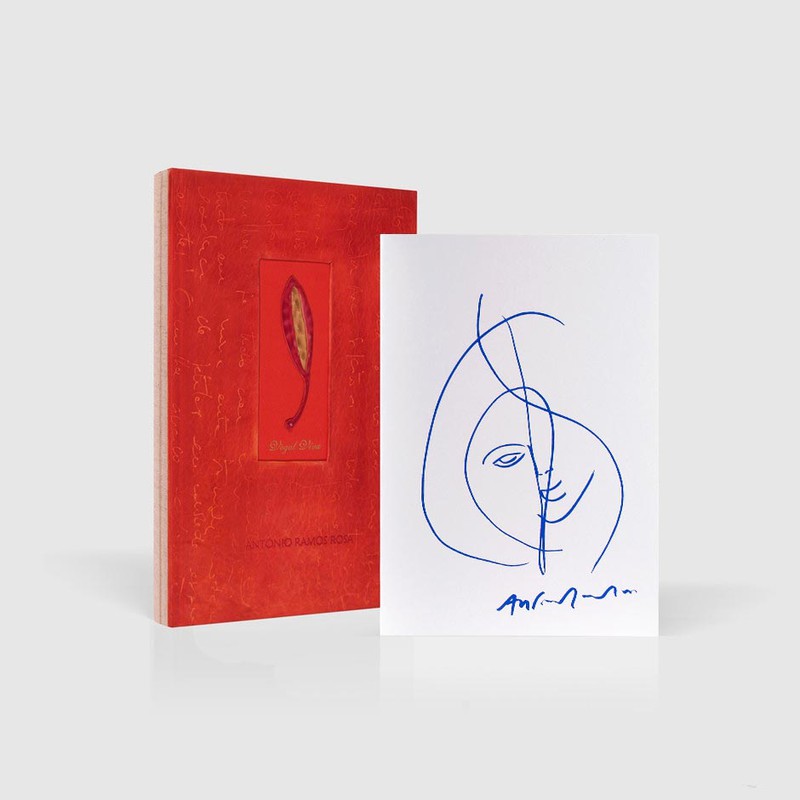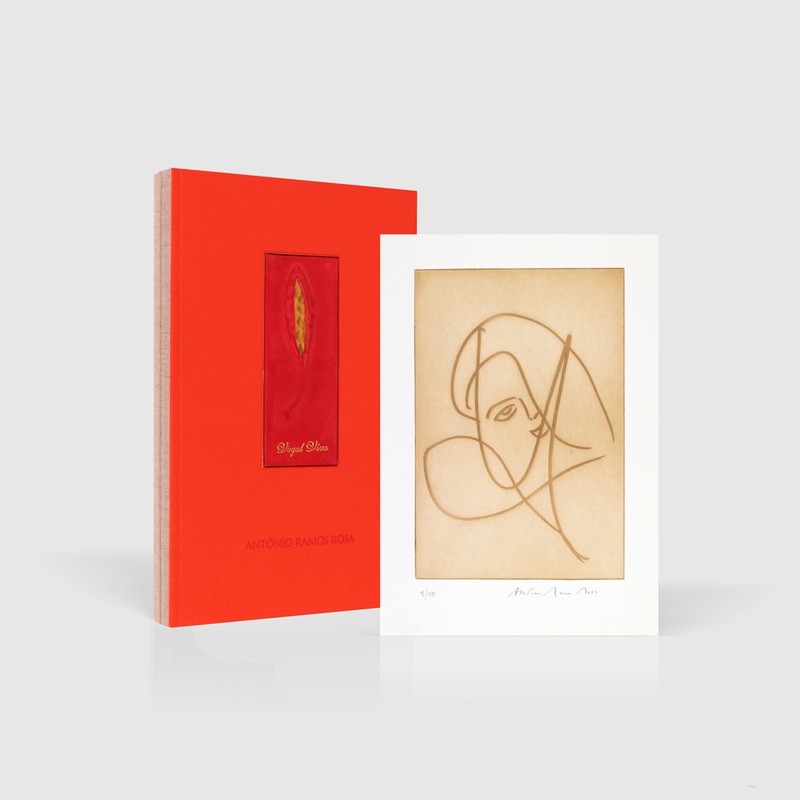
António Ramos Rosa
António Ramos Rosa was born in Faro in 1924.
He headed towards Lisbon at the end of World War II, where he lived intensely the Allied victory. He worked in commerce, an activity he soon abandoned in order to dedicate himself to poetry.
In the fifties, he became one of the directors of the magazines Árvore, Cassiopeia and Cadernos do Meio-Dia, and also contributed with literary criticism texts in Seara Nova and Colóquio Letras, among other periodicals. As a poet, he debuts in 1958 in the newspaper "A Voz de Loulé" with the poem "Os dias, sem matéria" and in the collection "O Grito Claro". Thus was created the movement of modern Portuguese poetry in which the author was moving. He wrote dozens of volumes of poetry and several essays.
He was awarded numerous national and foreign prizes, among which the Pessoa Prize, in 1988, the APE/CTT Prize in 1989, for the collection Acordes and, in 1990, the International Grand Prize of Poetry, within the scope of the International Poetry Meeting in Liège. He is considered one of the great Portuguese poets of today. His critical attitude towards his own words made him one of the most enlightened contemporary Portuguese critics. In 2001, the poet launched another Poetic Anthology.
António Ramos Rosa passed away in September 2013, in Lisbon.

